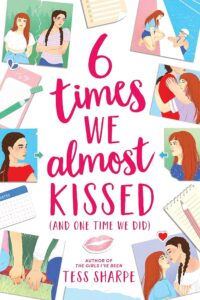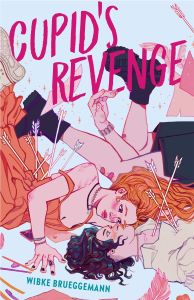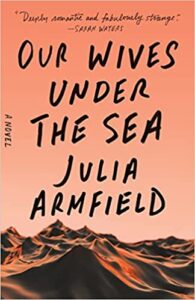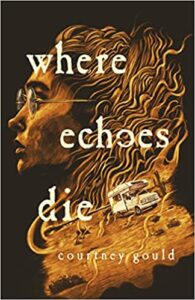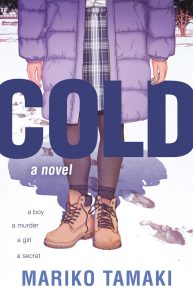Buy this from Bookshop.org to support local bookstores and the Lesbrary!
Penny and Tate’s mothers have always been best friends—but the same cannot be said about the daughters’ relationship. Having clashed their entire lives, they must now put aside their bickering when Penny’s mom agrees to become a liver donor to Tate’s mother, as both parents have decided to combine households for the summer. Although this will help the families get through this physically, emotionally, and financially difficult period, it will certainly not help Penny and Tate’s ever-confusing dynamic. Because, for some reason, they keep almost kissing. And even though they made a pact to keep the shared home drama-free, living across the hall from each other makes it increasingly more difficult to continue pretending that nothing ever (almost) happened between them.
As a fan of Sharpe’s writing, I can confidently say this is her best work. I’d read The Girls I’ve Been and Far From You in the past and really enjoyed them, but neither of those books got close to packing the same kind of emotional punch that I experienced while reading 6 Times We Almost Kissed.
Now, granted, it may be unfair to compare two thriller/mysteries to an angsty romance, and, granted, I am a very emotional reader. But this book… This book had me sobbing the entire way through. I know this is usually said (often by me) in a hyperbolic way. But it is a factually accurate assessment of my reading experience to say that tears were streaming down my face, non-stop, throughout the entirety of this story. I refused to read this book out in public because it was a guarantee that I would embarrassingly start crying in front of unassuming strangers on their daily morning commute.
I’d know from her other novels that Sharpe was particularly skilled at writing teenage characters who have suffered through unimaginable trauma. Therefore, it should have been no surprise that the cast of characters in this story were equally well-written, if not more so. The complexities of their family dynamics felt extremely raw and realistic, and I couldn’t help but deeply root for each of them to grow and heal. It is in fact quite a heavy story, but it felt almost therapeutic to read through, to the point that even though I knew it was going to cause me irreparable emotional damage, I could not put it down.
Sharpe does an excellent job of showing how a parent’s illness, a parent’s death and/or a parent’s grief will affect their child in the short- and long-term. The book really is an in-depth look into the ways our reactions to collective trauma impact those who were also affected by it, and the ways in which their own coping mechanisms can bend and mold the person that we become after the fact.
I do have a soft spot for sapphic main characters with complex mother-daughter dynamics, which ultimately are at the core of this novel. Yes, it is about romance and love and allowing yourself to believe that people can care deeply for you even after witnessing you at your lowest. But it is also about how difficult it is to be a mother after facing life-altering events; how painful it is to be the child of a parent who struggles to recover from pain, suffering, and loss; how limited rural medical access can force people to put themselves at risk for the sake of those they care about; how you can hurt those around you, but it does not necessarily make you a bad person unworthy of forgiveness and love.
If you’ve read some of Sharpe’s other novels and appreciated either the character analysis or her iconic non-chronological style of storytelling, you will love this book. She definitely included much less mystery than in her other YA novels, but she makes up for it tenfold in angst, love, and tears.
Representation: bisexual main characters
Content warnings [as listed by the author]: emotional abuse, neglect of a daughter by a mother, PTSD, accidental death of a father, ovarian cancer, remission, oophorectomy, liver donation, mentions of suicidal ideation and pain medication being monitored, mentions of a past interrupted assault, anti-therapy and anti-medication attitudes

